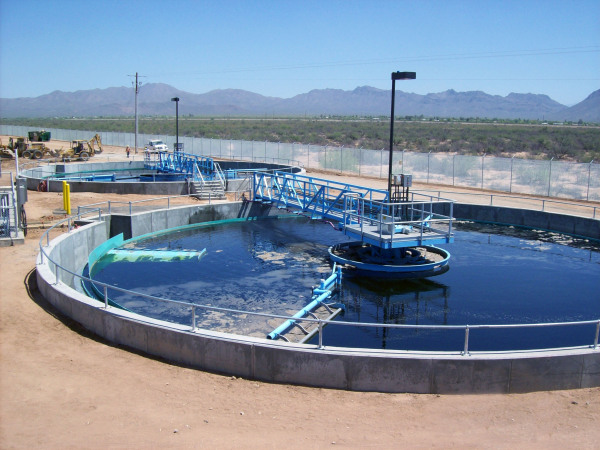Experts from the water sector are calling for increased investment in advanced water treatment technologies to assist with water security.
While electricity is top of mind for South Africans at the moment, industry experts set to participate in the upcoming IFAT Africa environmental technology trade fair in Johannesburg, say water and wastewater treatment are just as critical as power, if not more so.
According to IFAT advisory board members water and wastewater infrastructure face significant challenges that are worsened by load shedding. Repeated and prolonged power outages have a major impact on water and wastewater systems, putting pressure on facilities already failing battling with ageing infrastructure, and a lack of funding and skills resources.
Health risks for communities
Tumelo Gopane, Managing Director of East Rand Water Care Company (ERWAT), which provides bulk wastewater conveyance and treatment to thousands of industries across Ekurhuleni, says that bulk water treatment facilities in the major metros have no alternative to baseload power as supplied by Eskom.
“Smaller pump stations could potentially look to alternative power, but the major plants in urban areas cannot simply procure generators or implement solar generation – they have massive power requirements,” he says.
Gopane says that while water quality processes and systems are of a high standard, distribution systems can fail during power outages, resulting in severe problems. However, South Africa’s wastewater treatment is already extremely constrained from both a capacity and effluent quality point of view, therefore power outages and associated water cuts will worsen the challenges, posing health risks to communities.
Power shedding and water shedding go hand in hand
Gavin Bruggen, Managing Director of Wilo Pumps, believes that power load shedding and water load shedding go hand in hand. “As an international company whose key focus is energy efficiency in the water and wastewater sector, we know how critical energy usage is on processing and water supply plants.”
“The process of supplying water is critical and forms part of basic human rights, and without a stable power supply, this becomes almost impossible. If the current load shedding schedule is increased this will have a drastic impact on the whole system. These systems aren’t designed for intermittent use and the impact of fluctuating power will have a drastic effect on the maintenance cost of these systems.”
Water security needs to be taken more seriously
Wayne Taljaard, Managing Director of WEC Projects, which provides engineered solutions in the water and wastewater treatment industry, adds: “The crisis we face isn’t a result of load shedding alone. Load shedding is just another compounding factor on top of a range of issues, such as an apparent lack of will to address key problems, and no punitive measures for those who discharge effluent into rivers, for example.”
Henk Smit, founder of Vovani Products, which provides technologically advanced products for water treatment plants, says water security needs to be taken more seriously:
“They say with power outages, you can always make a plan to generate light and charge devices, but you can’t simply improvise when there is no water. For water security, you have to have a long-term strategy and the right equipment in place.”
Newer technologies
Overcoming South Africa’s wastewater crisis and looming water security issues demands a range of interventions, including new technologies and enhanced stakeholder collaboration, say the IFAT advisory board members.
Says Taljaard: “The necessary technologies, assets and even the funding are available, but we need to see a collective appetite to turn them into solutions. Assets aren’t being fully utilised, and there are plants running at a fraction of their capacity, by retrofitting existing plants with new technologies, we could make a great deal of progress.”
Smit echoes this sentiment, noting that newer, more effective technologies are driving down operating costs and treatment plant power consumption around the world.
Collaboration
Gopane believes that better collaboration could contribute to solutions for the sector. He says: “Lack of coordination is a key challenge. For example, the wastewater heads across the eight major metros do not have a formal collaboration forum. Imagine the progress we could make through coordinated planning and budgeting in a formal forum.”
ERWAT, Vovani Products and WEC Projects will be among over 100 solution providers participating in IFAT Africa, to showcase advanced new technologies and services to overcome South Africa’s water and wastewater challenges.

